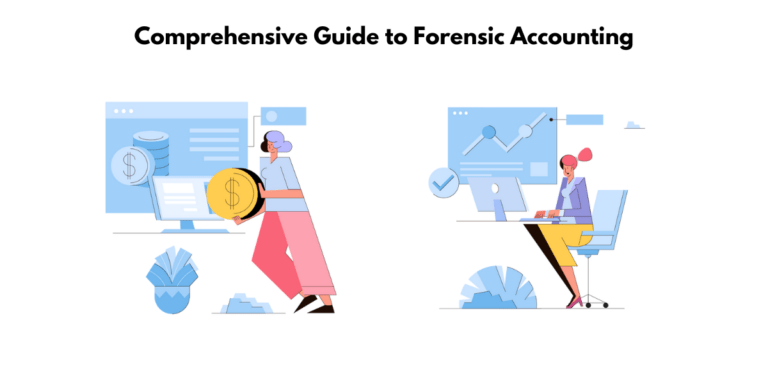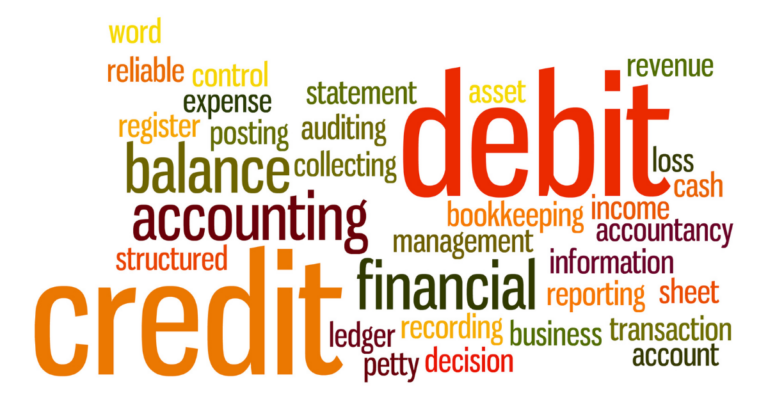Types of Accountants: Accountant Types and How to Choose the Right One for You
What is an Accountant?
Definition: An accountant is a professional who maintains and examines business accounts. For instance, they record transactions, revenue, and expenses in a restaurant.
Expanded Definition:
Accountants handle financial records. Their responsibilities encompass various aspects including:
- Auditing: Concise review of an enterprise’s records. Auditors ensure tax payments are made properly and in due time. They analyze and communicate financial details for individual clients, companies, and various governmental entities.
- Forensic Accounting: A specialized practice where accounting skills assist in legal matters. They investigate white-collar crimes like securities fraud and embezzlement.
- Public Accounting: A broad role. They perform daily tasks available for auditing, tax and financial planning, and consulting.
- Tax Professionals: Receive training in the field of taxation. Empowered by the U.S. Department of Treasury to represent taxpayers at all administrative levels regarding IRS audits, collections, and appeals.
- Financial Advisors: Offering investment advice and financial planning services. They consult clients to improve their financial situations.
- Accounting Consultants: They play a crucial role in preparing financial reports, analyzing, interpreting, and evaluating financial reports for various authorities and internal management.

Types of Accounting
Forensic Accounting
Forensic accounting is a specialized branch of accounting that combines the thrill of detective work with financial expertise. They’re basically financial detectives who excel at combing through financial records, uncovering fraud, embezzlement, or money laundering, and making sense of complex data.
In their role, forensic accountants usually:
- Analyze a business’ financial records, transactions, and assets
- Work closely with law enforcement or revenue services to detect financial crimes
- Use advanced computer applications to log, collate, and analyze financial data
- Prepare comprehensive reports on their findings
- Often recreate financial information if some data is missing or not available for review.
Thus, aside from having sound accounting knowledge, these professionals also need to be meticulous, analytical and possess strong investigative skills.
Forensic accountants play a crucial role in ensuring financial transparency and preventing white-collar crimes in organizations of all sizes.
Tax Accounting
In the fascinating realm of accounting, Tax Accounting holds remarkable importance. As a constant companion to both individuals and organizations, it’s all about taxes, legal frameworks, and staying compliant with regulations.
Tax Accounting is a specific branch of accountancy, concentrated on tax-related obligations and benefits of a company or an individual.
Top Features of Tax Accounting:
- Primarily focuses on tax-related matters.
- Prepares tax returns and manages tax payments.
- Analyses tax-related business decisions and regulations.
- Helps entities remain compliant with IRS rules.
- Assists in planning for future tax returns.

Public Accounting
Public accounting provides financial advice to external clients, including businesses, individuals, and government. For instance, you might need a public accountant to ensure your company’s financial records are accurate and compliant with regulations.
Top Public Accounting Features:
- Detailed financial auditing
- Tax consultation and filing
- Application of industry-standard procedures
- Legal advisory services
- Client-centered knowledge transfer
Managerial Accounting
Managerial accounting is the practice of analyzing and presenting financial data to help managers make informed business decisions.
- Importance: Managerial accounting provides vital information that shapes the direction of a business. It helps in forecasting future trends, planning budgets, and assessing the financial health of an organization. It’s essential for making key operational decisions.
- Best for: It is particularly useful for the company’s senior management team, managerial accountants, and small business owners looking to understand and improve their finances. FreshBooks, for example, offers simple online software for small businesses for this purpose.
Key Features:
- In-depth financial analysis
- Budgeting and forecasting
- Cost analysis and control
- Analysis of past business decisions
Cost Accounting
Cost Accounting is a subcategory of managerial accounting focusing on recording and analyzing manufacturing costs such as fixed, variable, and overhead expenditures. For instance, it might assess costs related to rent (fixed cost) or shipping (variable cost).
- It helps minimize financial waste and maximize profits.
- Professionals are known as Cost Accountants conduct cost accounting.
- Its application affects both financial and managerial accounting.
- A crucial role is determining methods for allocating overhead or indirect costs.
- It’s notably useful for understanding the true cost of an employee, especially those associated with revenue generation.
- Cost accountants also provide critical insights on budgeting, profitability, and expense management.
- It can be used as a tool to improve margins by identifying opportunities for cost reduction.
- Main responsibilities include data analysis of target costing, margin analysis, and inventory management.
Accounting Information Systems
Essentially, AIS is a system by which a business collects, stores, and processes its financial and accounting data. Imagine having a system that connects the HR hiring process with payroll – eliminating the need for manual input.
And why might one need AIS? Here’s why:
- To enhance efficiency: AIS directly affects the productivity of all departments in a company.
- To stay up-to-date: AIS professionals constantly evaluate and install updated technologies, ensuring smooth operational continuity.
- To secure data: AIS is instrumental in maintaining database systems, information security, and more.
- Increase in job opportunities: With the rising demand for AIS specialists, it paves the way for exciting job opportunities.
Overall, when you need to streamline complex financial processes, AIS comes to the rescue!
Financial Accounting
Often fondly referred to as the “language of business,” financial accounting keeps businesses and shareholders in the know. From recording transactions to generating financial statements, it’s an essential cog in the accounting machine.
Key features include:
- Recording and categorizing business transactions
- Generating financial statements according to GAAP
- Serving as a snapshot of a company’s financial health for investors and lenders
- Compliance with external regulations
As you venture into financial accounting, remember, it is the analytics and attention to detail that make for a successful financial accountant.

Different Types of Accountants
Government Accountant
A Government Accountant is a professional who oversees financial operations within federal, state, or local governmental bodies. They monitor the movement of public funds, manage budgets, and ensure compliance with relevant regulations and standards.
Government Accountants are tasked with an array of responsibilities:
- Budget planning and management
- Auditing private businesses and individuals
- Compliance with the Governmental Accounting Standards Board (GASB) or the Federal Accounting Standards Advisory Board (FASAB)
- Investigating white-collar crime
- Securing confidentiality and privileged information
Financial Advisor
A Financial Advisor is a professional who helps clients plan their financial goals, manage their money, and work towards an increased wealth future. For instance, they could assist a retiree in selecting the best annuity to fit their lifestyle.
Providing expertise in:
- Investment strategies including stocks, 401K plans, and IRAs.
- Financial planning tasks, such as savings plans for specific needs.
- Maintaining overall financial health through regular check-ins.
- Offering solutions for short- and long-term financial planning.
- Balancing budgeting and increasing wealth for a better present living.
Remember, a secure financial future doesn’t have to be a labyrinth when you have a skilled Financial Advisor by your side.
Auditor
As ‘accuracy experts’, auditors are our go-to financial detectives. They examine financial data without bias to ensure it’s honest and precise. So, where do you fit in this? Whether you’re an aspiring auditor, a business owner, or simply curious, understanding auditors can be beneficial for everyone!
An auditor is an accounting professional adept at verifying the accuracy and legality of a company’s financial records and providing recommendations for improvements.
Responsibilities of an auditor:
- Examining financial statements for accuracy and legal compliance.
- Ensuring taxes are timely paid.
- Inspecting account books and accounting systems for efficiency.
- Organizing and maintaining fiscal records.
- Assessing financial operations for improvement opportunities.
Investment Accountant
Ever thought about where finance and investment overlap? Meet the investment accountant – an expert in managing investments while keeping a keen eye on all financial regulations. An investment accountant is a professional who oversees and maintains clients’ investments, ensuring their alignment with mandated state regulations. Picture this; you, an investment accountant, working at a fast-paced asset management firm or brokerage, keeping tabs on a diverse portfolio of stocks, bonds, and precious metals, among others.
Key responsibilities include:
- Maintaining and managing clients’ investments
- Developing the firm’s financial strategies
- Ensuring compliance with federal and state regulations
Investment accountancy: where numbers, regulations, and investments converge.
Chartered Accountant
A Chartered Accountant (CA) is a proficient expert in international accounting. This choice of accountant benefits businesses aiming to thrive in the global market due to their in-depth understanding of international financial regulations.
- Expertise in International Financial Reporting Standards (IFRS)
- Specialized training in global accounting practices
- Knowledge of tax laws across multiple nations
- Proficiency in financial accounting, reporting, applied finance, management accounting, and taxation
Project Accountant
A Project Accountant monitors the financial details of projects on a project-by-project basis, ensuring expenses and revenues align with project specifications. For example, this could involve handling finances for a new product launch.
You might need a Project Accountant when undertaking a significant project where accurate financial feedback and control are paramount. They’ll help keep your budget in check, ensuring all financial requirements are met. Expert tip: look for a Project Accountant with a combination of excellent communication skills, a background in cost accounting and, ideally, relevant certifications such as a Certified Public Accountant (CPA) credential. Remember, a qualified Project Accountant could be the key to keeping your project on budget and on time.
Forensic Accountant
A Forensic Accountant is a financial detective, applying accounting expertise to uncover errors or fraudulent activities in financial records. Their primary role is to trace money trails to expose acts such as embezzlement and fraud.
- Analyzing business’ financial records, transactions, and asset allocation.
- Working closely with law enforcement agencies and IRS.
- Utilizing advanced computer applications for data analysis.
- Producing detailed reports for clients or investigative bodies.
- Serving as expert witnesses in court proceedings.

Certified Public Accountant (CPA)
A Certified Public Accountant (CPA) is a high-level accounting professional who serves as an advisor, tackling tax, auditing, and consulting tasks. These experts not only handle taxes but also offer a wide spectrum of financial services to cater to your fiscal needs.
CPA Responsibilities:
- Overseeing and executing tax planning and strategies
- Ensuring adherence to the generally accepted accounting principles (GAAP)
- Managing financial audits and evaluations
- Offering financial planning and reporting services
- Providing forensic accounting and litigation support
Top 5 Benefits of Hiring a CPA:
- Comprehensive tax management could potentially save your money
- Accurate financial reporting to mitigate errors
- Expert auditing services can improve your business’ financial health
- Consulting services may assist in better financial planning
- A skilled CPA can offer specialized services such as forensic accounting
Top 5 Challenges of Hiring a CPA:
- Cost associated with hiring a professional CPA
- Meeting the exact accounting needs per your business
- CPA availability during critical business periods
- The potential for CPA-client miscommunication
- Keeping up to date with changing tax laws and regulations.
For example, a CPA’s expertise is imperative when dealing with a complex tax situation that demands intricate planning A Certified Public Accountant (CPA) is a seasoned professional who specializes beyond tax preparation, operating as a trusted advisor in planning and meeting financial goals. With a multitude of responsibilities, a CPA’s role is integral in helping individuals and businesses navigate complex financial landscapes.
Management Accountant
If you’re a business owner or manager, it’s crucial to understand the integral role a Management Accountant can play in your company’s financial health. We’ll delve into this vital role and how they contribute to a company’s success.
A Management Accountant is a professional who helps decision-makers within private businesses, public companies, and government agencies by providing crucial financial data. For instance, when making substantial investment decisions or planning a budget, a Management Accountant’s expertise is indispensable.
Here’s an overview of their responsibilities and benefits:
- Recording and crunching numbers for internal review
- Helping to choose and manage company investments
- Managing risk, monitoring budget, and facilitating strategic planning
- Generating insights by identifying trends and opportunities for improvement
- Supervising lower-level staff and overseeing financial departments
- Providing leadership with data-driven recommendations for strategic decision-making
- Helping grow the business by measuring financial health and analyzing profitability.
Employing a Management Accountant assures top-notch financial insight, robust decision-making support, and efficient supervisory skills.
How to Choose the Right Accountant for You
Choosing the right accountant is a crucial decision that can significantly impact your financial well-being and strategic decisions. An ideal accountant will not only maintain records and pay taxes but also provide valuable financial advice to help grow your business.
- Understand Your Needs: Analyze the nature and size of your business to determine what type of accountant will suit you best. Do you require someone for tax preparation, forensic accounting, auditing, or strategic business advice?
- Consider Their Expertise: Check if they have experience working in your industry or dealing with businesses like yours. Accountants often specialize in various areas; pick one aligned with your needs.
- Communication Skills: Accountants should have top-notch communication and listening skills as their advice is only as good as their understanding of your needs.
- Qualification Check: Ensure the accountant is appropriately certified and qualified for the job. It could range from being a bookkeeper to a financial advisor.
- Look for Recommendations: Reach out to your network for recommendations of accountants they’ve had good experiences with.
- Use Professional Services: Businesses like CFO Hub can offer you access to a diverse team of accountants tailored to your requirements.
Remember, the right accountant can provide valuable insights that can help you strategize and grow your business.

Conclusion
In conclusion, the field of accounting offers a vast array of specialist roles. There are at least 15 different types of accountants working in today’s business landscape, from Certified Public Accountants (CPAs) and Management Accountants to Forensic and Investment Accountants. Each type of accountant serves a unique role in the financial and accountant business sectors, allowing for a wide range of career opportunities.
A Certified Public Accountant (CPA), for instance, plays a critical role in assessing a company’s financial operations, essentially acting as a backbone for the fiscal health of an institution. So, what do CPAs do exactly? They carry out tasks such as producing financial forecasts, conducting risk analysis, offering guidance on cost reduction and revenue enhancement, and preparing and filing tax returns, among others. This continually growing and dynamic field can extend to allowing CPAs to specialize in various areas according to their interest and the unique needs of their employers.
On the other hand, a personal accountant often works with individuals rather than businesses. They help manage personal finances, offering services like tax preparation, retirement advice, and investment guidance, based on each client’s financial goals and circumstances.
For those considering a career in this field, the path to become an accountant usually involves earning a bachelor’s degree in accounting or a related field, gaining field experience, and in some cases, receiving relevant certifications. This exciting profession offers not only diverse roles but also promising career prospects with competitive remuneration and job security. All these factors, combined with the inherent challenge and variety in the role, make the accounting profession an attractive choice for individuals with an aptitude for finance and a talent for meticulous organization.
- Management Accountant: Role, functions, description, responsibilities, and more - November 28, 2022
- Cash Flow Management: How to Manage Your Business’ Cash Flow - April 9, 2022
- Types of Accountants: Accountant Types and How to Choose the Right One for You - October 21, 2021





